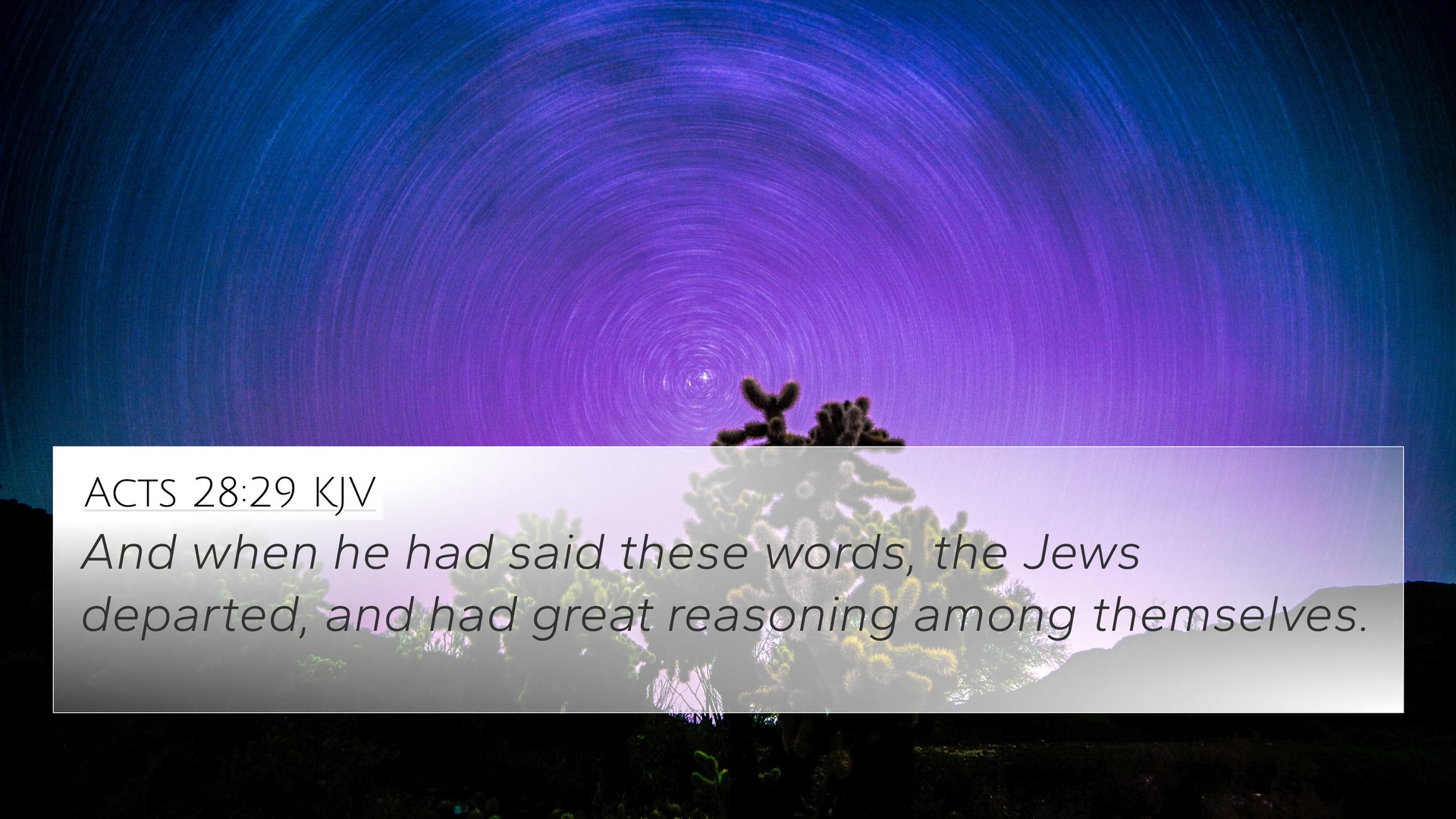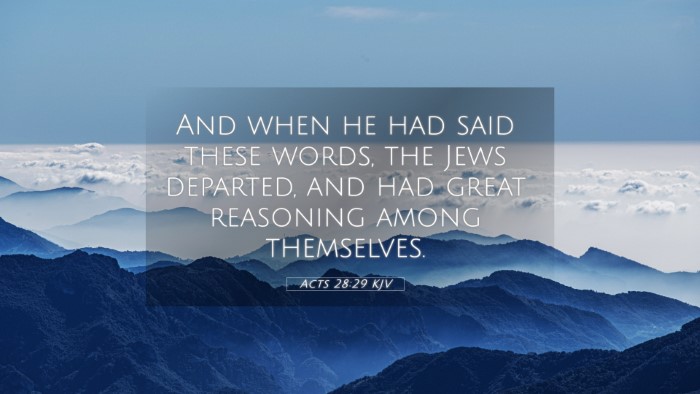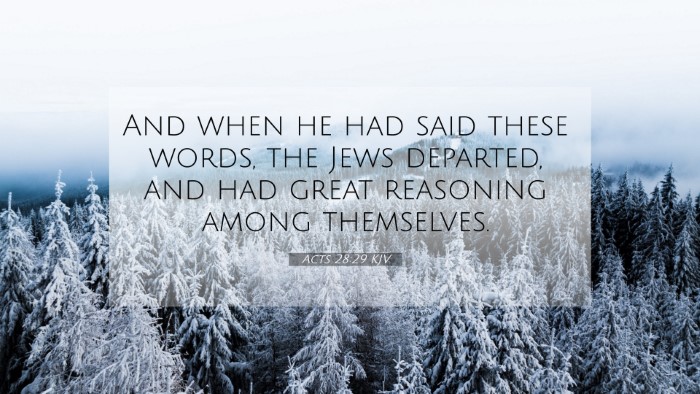Understanding Acts 28:29
Acts 28:29 states: "And when he had said these words, the Jews departed, and had great reasoning among themselves." This verse occurs at the conclusion of Paul’s ministry in Rome, emphasizing the stark contrast between those who receive the Gospel and those who reject it. Below is a summarized interpretation of this verse, drawing insights from various public domain commentaries.
Summary of the Verse
The statement highlights the reaction of the Jewish listeners to Paul's preaching. Some were convinced and others were not, leading to intense discussions among themselves. This verse marks a pivotal moment, showcasing the resistance Paul faced and the ensuing theological debates that his message sparked.
Commentary Insights
- Matthew Henry: Henry emphasizes the overarching theme of divine rejection faced by Paul from the Jewish leaders, linking this to the fulfillment of Isaiah's prophecy about hardened hearts. He suggests that the Jews' departure symbolizes an unwillingness to accept the truth, revealing the tension between the Gospel and traditional beliefs.
- Albert Barnes: Barnes notes the significance of the Jewish division on this matter, pointing out the varied reactions among the leaders. He connects the verse to the earlier chapters of Acts, illustrating the ongoing struggle of the early church to spread the Gospel amidst opposition. Barnes reflects on the implications of such discussions, suggesting they represent the broader narrative of salvation offered to the Gentiles.
- Adam Clarke: Clarke interprets this verse as an illustration of the fulfillment of Paul's mission, indicating that the discourse did not resolve but rather festered into more profound discussions among the dissenters. This illustrates the complexity of theological interpretations within the Jewish community as they grapple with Paul's message.
Key Themes and Connections
Acts 28:29 can be explored in the context of various Biblical themes and verses, highlighting connections between scripture that illuminate deeper understanding. Here are some relevant cross-references:
- Isaiah 6:9-10: Isaiah's prophecy about hearing but not understanding aligns with the Jews' response in Acts 28.
- Romans 11:25-26: The mystery of Israel's hardening and eventual salvation is a central theme echoing the verses in Acts.
- 2 Corinthians 3:14-16: Paul discusses a veil over Israel's understanding which can be seen as parallel to their reasoning.
- Matthew 13:14-15: Jesus references the same dynamics of seeing yet not perceiving, resonating with the discussions in Acts.
- Acts 13:46: Paul once more faces rejection from the Jews but turns to the Gentiles, which is reflective of the outcome here.
- John 1:11: "He came unto His own, and His own received Him not" captures the essence of Israel's rejection of Christ.
- Galatians 3:28: The call for unity beyond ethnic lines stands in contrast to the division presented in this verse.
- Luke 10:16: Jesus' words about those who reject Him can be echoed in the rejection Paul faces among the Jews.
- 1 Peter 2:8: The idea of a stumbling stone is reiterated, linking the Jewish leaders' response to the cornerstone of their faith.
Conclusion
Acts 28:29 serves as a significant theological touchpoint within the narrative of the early church, providing insight into the resistance faced by the Gospel and highlighting the broader implications of faith across communities. The reactions recorded in this verse resonate deeply with themes found throughout both the Old and New Testaments, offering rich grounds for comparative Bible verse analysis and theological reflection.
Suggested Tools for Bible Cross-Referencing
To further explore the inter-Biblical dialogue suggested by Acts 28:29, consider utilizing tools such as:
- Bible concordances to find themes related to rejection and acceptance.
- Bible cross-reference guides to identify connections among the texts.
- Cross-reference Bible study methods to enhance understanding of scripture interlinkages.
- Bible reference resources for comprehensive studies on scriptural themes.
Final Thoughts
This verse highlights the eternal struggle between belief and disbelief, the light of faith against the background of tradition. The journey of understanding and faith continues through the dialogue created by these sacred texts.


